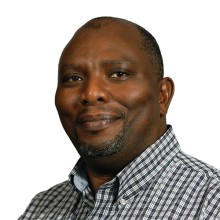Interface Drive Organic and Flexible Electronics
Advances in flexible electronics and wearable electronics demand new low temperature solders while a changing climate calls for new affordable approaches to catalyst design or corrosion protection. Geopolitical mining challenges also threaten progress in microelectronics, in part, due to an unreliable specialty element supply chain. Our group couples fundamental surface thermodynamics and autonomous processes to address these challenges. We demonstrate that engineering the energy landscape by expanding the stimuli field(s) into high-rank tensors allows us to either enhance mixing or demixing as the energy landscape is appropriately tuned. First, we inferred that low-temperature solders can be obtained by remote melting of a metal and frustrating solidification while catalysis can be addressed by coupling surface reactions with concomitant self-assembly into photocatalyst synthons. We address supply chain issues through urban mining (e-waste recycling) by inverting the undercooling process into a divergent process to enhance de-mixing. Preliminary studies show that even eutectic mixtures can be destabilized through felicitous choice of processing conditions and irreversible asymmetric distribution of resulting products.

Dr. Martin Thuo
Professor, NC State's Department of Materials Science & Engineering on February 9, 2023 at 12:00 PM in MRC 454
Martin Thuo is a Professor in the Departments of Materials Science & Engineering at NC State. He was the Schafer 2050 professor at Iowa State University in the Department of Materials Science & Engineering and in Electrical and Computer Engineering. Prior to this, he was a Mary-Fieser (2009-2011) and NSEC (2011-2013) Fellow at Harvard University under Prof. George M. Whitesides. He is the recipient of several awards like the ACS nano rising star, Akinc excellence in research award, Lynn-Anderson research excellence award, Black & Veatch faculty fellowship, among others. He is a co-host of the ICAN-X talks and serves on the boards of various journals. His research interests encompass the general theme of frugal innovation through simplicity and surface thermodynamics.
ASSIST is developing leading-edge systems for high-value applications such as healthcare and IoT by integrating fundamental advances in energy harvesting, low-power electronics, and sensors with a focus on usability and actionable data.
